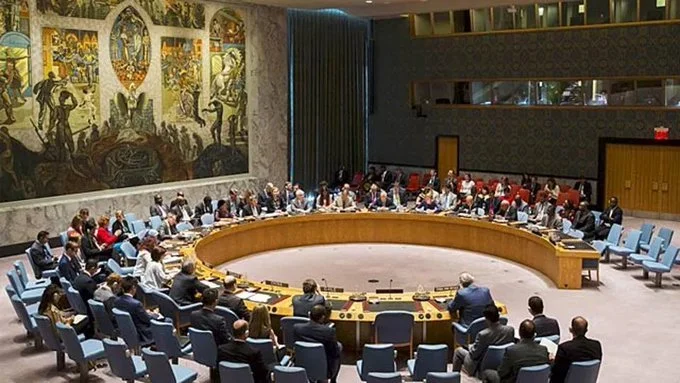The UNSC Report and the Taliban 2.0 Rewind
June 10, 2023 - The riveting landscape of Afghanistan, dominated by the resurgent Taliban, is once again under international scrutiny. The United Nations Security Council's (UNSC) Sanctions Committee's annual report sheds light on a disturbing echo from the past – the resurrection of the Taliban's exclusionary strategies harkening back to the late 1990s. The comprehensive analysis uncovers intricate alliances with international terrorist entities, innovative funding strategies, and internal discord threatening to destabilize the Taliban's hold on power.
A specter of the past seems to have reawakened, as the report highlights the Pashtun-centric policies instituted under Hibatullah Akhundzada's regime. The current governance closely mirrors the autocratic rule from the late '90s. However, beneath the façade of ethnic solidarity lies a brewing discord. Power has ostensibly shifted to Kandahar, with Hibatullah at the helm, juxtaposed against the Haqqanis in Kabul, embodying a more pragmatic faction. The fracture within the Taliban ranks poses a precarious future for Afghanistan.
Further darkening the tableau, the report unearths an ongoing campaign of ethnic cleansing. Non-Pashtun populations face forced evictions, coupled with escalating instances of violent suppression. The chilling narrative is eerily reminiscent of the "Pashtunization" strategy of the '90s, reflecting a cyclical nightmare of history.
Ali Nazary, the Head of Foreign Relations for the National Resistance Front of Afghanistan (NRF), amplifies the severity of the situation through his response to the UNSC report. He asserts that the NRF's struggle isn't a civil war but a continuation of the Global War on Terror, dismissing claims of peace restoration in Afghanistan. Nazary's fight is not just against the Taliban, but against international and regional terrorist groups supported and deployed by the Taliban, including ISIS. The UNSC report provides a grim validation of these claims.
“Sections in the 14th UNSC Report that support our claims:
The Taliban reportedly use some terrorist groups in operations against ISIL-K and the National Resistance Front.
Jamaat Ansarullah remains closely affiliated with Al-Qaida in a symbiotic relationship with the Taliban, fighting alongside their special forces, the Badri 313 Battalion, in numerous offensives against the National Resistance Front, including the one conducted in October 2022 in Badakhshan Province.”
The intricate bond between the Taliban and Al-Qaida is a point of interest in the report. The death of Aiman al-Zawahiri has sent a wave of fear rippling through the foreign fighters, who foresee their fate mirrored in Zawahiri's.
Moreover, the economic gears that drive the Taliban's operations are laid bare in the report. Exploiting the anonymity of cryptocurrency platforms and the untraceable nature of prepaid bank and gift cards, the Taliban has ensured a steady flow of funds. Contrary to their public pronouncements, drug trafficking continues to be a primary source of income.
As the report uncovers the harsh realities of Afghanistan under Taliban rule, it simultaneously underscores the urgency of an attentive global response. The fight against the Taliban isn't confined to the borders of Afghanistan; it is a global struggle against the enemies of humanity, as Nazary rightfully points out.
The UNSC report highlights the crucial role groups like the NRF play in combating these threats. Their struggle is a beacon of resistance against the oppressive rule of the Taliban and their associated terrorist entities. Nazary's plea for international recognition and support for the NRF sends a clear message to the world – their struggle is our struggle.
As we navigate the complex geopolitical landscape, the report serves as a poignant reminder of the global implications of the conflict. It invites us to not only support the NRF in their unwavering resolve against terrorism but also to fight for a brighter future for Afghanistan and, ultimately, for global security. Only through global unity and action can we hope to overturn the grim realities reflected in the report and ensure a safe, secure world for all.

